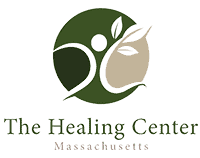It is a common occurrence that someone goes out to a bar or a party to have a few drinks with friends and family. When does drinking become a problem, and what are the signs and symptoms of alcoholism? Often, social drinking turns into more of an issue and an individual can begin to depend on the substance so they can function normally on a daily basis. This can be dangerous and lead to some extreme impacts to someone’s daily living. Knowing what signs someone can look for in themselves or a loved one can help to identify is professional help and guidance is needed.
What is Alcoholism?
Alcoholism can be classified as a mental and physical dependence on drinking. Someone who suffers from alcoholism cannot control their drinking, and despite the negative social and physical consequences they may experience, they continue to drink. The number of people who struggle with alcoholism in the United States is staggering, and the number of people who actually receive proper care and support to recover from alcoholism is low. The signs and symptoms of alcoholism that someone could look out for could be the catalyst for those that are struggling to get the help that is needed.
Physical Signs and Symptoms
Physically, the signs and symptoms of alcoholism that someone could look out for are pretty prevalent and obvious. When someone is addicted to alcohol, they cannot go a day without drinking, and when they begin drinking, the odds that they can stop themselves at any point are slim. Excessive drinking leads to tolerance and this means they would need more and more alcohol in order to feel like they could function properly.
The most prevalent sign someone could look out for is experiencing withdrawal symptoms. If alcohol is not readily available, there may be some physical withdrawal symptoms that are signs and symptoms of alcoholism. At this point, the individual may be in need of professional help in order to stop drinking.
Behavioral Signs and Symptoms
When it comes to behavioral signs and symptoms of alcoholism, it could be subtle signs that occur. Isolation can provide a space for the person struggling to be able to drink without others expressing concern, and they could potentially just drink and be able to hide the amount of alcohol they consume daily. There could be some extreme mood and personality changes as well. Going from a happy, bubbly person to someone who has angry outbursts, especially when they cannot drink, is a sign someone could be struggling. Another sign to look out for is engaging in dangerous behaviors while drinking, including drinking and driving. The dangers associated with the behavioral signs and symptoms of alcoholism can not only harm the individual, but also those around them.
Alcohol Withdrawal
Signs and symptoms of alcoholism can include physical and psychological alcohol withdrawal. Physically, those who struggle with alcohol may begin to experience some uncomfortable symptoms when alcohol use has stopped. These symptoms can include headache, nausea, vomiting, diarrhea, insomnia, and blood pressure changes. Alcohol withdrawal can also cause seizures, which is why it is extremely important and highly suggested to be medically monitored as alcohol withdrawal occurs.
Physiological signs of alcohol withdrawal can include depression, anxiety, mood changes, and extreme cravings. These cravings tend to lead people back to drinking, and they can last long after the physical withdrawal process has ended. Continued support after physical detox is vital to maintaining recovery from alcoholism.
Treatment for Alcoholism
Once someone has physically gone through and completed a physical detox from alcohol, staying sober is best achieved through proper support and help from professional staff. Therapies are vital to learning new and positive coping skills to keep an individual on the road to recovery from alcoholism. Some therapies that are proven to be a positive influence in the lives of those struggling with alcoholism include:
- Dialectical Behavioral Therapy
- Cognitive Behavioral Therapy
- Group therapy
- Eye Movement Desensitization and Reprocessing
- Family therapy
Participating in these therapies can lead to positive outcomes in the lives of those displaying signs and symptoms of alcoholism. Receiving proper treatment, care, and support as a person is trying to recover can lead to positive and productive changes in their life. Reaching out and speaking to a professional about what route to take is the best way to achieve a life of recovery.
Getting Sober
When it comes to alcoholism, it can be extremely difficult to stop drinking without proper care and support. Not only is there a physical addiction to the drink, but there are also psychological symptoms and cravings that can occur and make it extremely difficult to stop drinking. If you or a loved one are struggling with alcohol, there is hope. The Healing Center in Stoughton, MA can help as you embark on a journey to recovery. Our team of professionals is standing by to guide you through the beginning processes. Contact our admissions team today to learn more.







